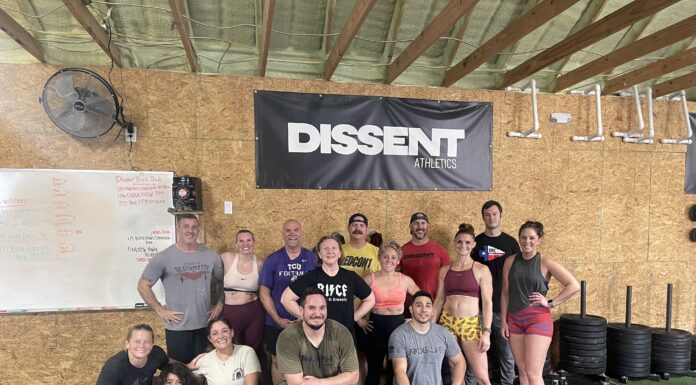This article is reprinted in part from Star
Telegram
BY SANDRA J. ENGELLAND
Background:
A trained service dog can cost as much as $30,000, and the wait through charities can be years.
The cost for the IDEA Service Dog program is $275 for start-up fees (equipment and the 200-page manual) and $40 a month for training. {{more}}The fees can be reduced or waived for those who can?t afford them. The fees do not cover all the costs involved. As a 501(c)(3) charity, the group relies on donations.
It?s the first day of classes, and Pippa can barely contain her excitement. She knows she?s supposed to sit still and listen to instructions, and for one so young and full of energy, she does an admirable job.
Fortunately, the promise of a treat makes it easier to pay attention.
Pippa is a 4-month-old Vizsla puppy with a smooth caramel coat, big droopy ears and the kind of soft, sweet eyes that make humans melt. She?s intently engaged with her surroundings and with what she?s being taught in her first class with IDEA Service Dogs of Keller.
Her owners, 16-year-old Lina Perez and her mom, Katie, live in far north Fort Worth, and have come to IDEA?s founder, Maureen Bennett, to learn how to train Pippa to be a seizure response dog.
It?s an atypical situation. Usually, service dogs are selected and trained and fostered during a lengthy and expensive process, then, finally, assigned to the people they?re meant to serve. But Bennett handles things differently, keeping the future service dogs and their people together from the get-go, so the relationship starts off strong and the dogs aren?t transferred through a variety of caregivers while they?re growing and working on their skills.
?We treat service dog training as a family affair,? says IDEA founder Maureen Bennett.
Lina, who has periodic seizures, has a lot riding on Pippa?s success. The plan is to teach Pippa to go get help if Lina has a seizure and to be able to retrieve a packet with medicine and instructions.
?In the future, I?d love to move out of the house and go to college, so having a service dog will be added security and companionship,? she says.
In a private session before the first group class, Pippa only wriggles a little while getting buckled into her service dog in training vest. The new royal blue apparel bears that telltale patch with the slogan, ?Please don?t pet me I?m working.?
Lina has a bag of small treats and a clicker to reward good behavior, and when Pippa lies on a small rug at Lina?s feet, it earns her a click and a treat.
Treats and praise…
Right now, Bennett has eight canine ?students? divided into two IDEA training classes, plus another dog taking a private class. The classroom for the IDEA dogs ? the name stands for Independence Dogs for Everyone With Differing Abilities ? is in the garage of Bennett?s home, a remodeled, air-conditioned space where classes take place on Sunday afternoons, September through June.
She keeps her groups small because it gets crowded: Besides four trainers in attendance, each dog is accompanied by its disabled person and another family member who also participates.
While most traditional programs insist on one person giving the orders, IDEA?s practice is to educate the family on commands and methods. A list of 60 different commands dogs are expected to learn during a two-year period range from the usual ?sit? and ?down? to higher-level tasks like turning off lights or finding a misplaced item ? an inhaler, for instance.
Training focuses on the use of treats and praise ? reinforcing good behavior and ignoring bad behavior. In addition, the program?s mission is to provide service dogs at an affordable cost, thus the novel concept of equipping families with the training knowledge and allowing a disabled pet owner to use a dog he already has, provided the animal has a good temperament for service.
?Our goal is for the dog to be ?bullet-proof? in public, first, and then, to learn special skills to help the disabled person,? Bennett says.
Read the full story and learn more at Mom2MomDFW
Newsletter






































